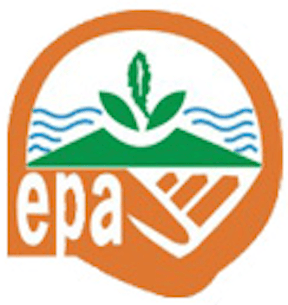EPA inaugurates two Committees to manage pesticides and chemicals
 To safeguard Ghana’s environment from the harm of pesticides and chemicals transportation and usage, two Committees have been inaugurated by the Environmental Protection Agency (EPA), to ensure its sound management in the country.
To safeguard Ghana’s environment from the harm of pesticides and chemicals transportation and usage, two Committees have been inaugurated by the Environmental Protection Agency (EPA), to ensure its sound management in the country.
Mr Kwesi Enyan, the Board Chairman of the EPA, inaugurated the two committees, namely, the Pesticides Technical Committee (PTC) and the Hazardous Chemicals Committee (HCC) of the EPA on Monday in Accra.
The two committees, with a four-year mandate, were inaugurated to fulfil the tenet of the EPA Act of 1994 (Act 490).
The Hazardous Chemicals Committee has Mr Peter Abum Sarkodie, Executive Director of EPA as its Chairman with 12 other representatives from various regulatory, agencies and environmental institutions as members.
The Pesticides Technical Committee on the other hand, has Mr Mustapha Kumah of the Ghana Standards Authority as the Chairman, with the other 12 member from the Ministries, Departments, and Agencies (MDAs) and other private entities.
The Committees were expected to manage the use of chemicals throughout its life cycle-from production or formulation, through use, transport and to the disposal or recycling.
Dr Sam Adu-Kumi, Director Pesticides/ Chemical and Registrar of Pesticides, EPA, who spoke to the GNA after the inauguration, said chemicals, could be really dangerous for human health and the environment if they were not properly used “but if they are properly managed or controlled, we need them in all sectors of society.
“That is why Ghana like all other countries of the world needs such management and control programmes in place to ensure the safety of use by humans,” he noted.
He said by the EPA Act, the two committees were mandated to ensure leadership in bringing the stakeholders together, through the EPA as a lead institution, and to make sure that the chemicals that were imported, manufactured and used, were according to standards or best practices.
“They will ensure that we don’t do anything that will really harm humans and the environment. So the committees have a huge task to ensure that the EPA and the collaborators are really enforcing the necessary laws and regulations in place to ensure safety for humans and environment”, Dr Adu-Kumi, said.
Mr Enyan said he inaugurated the Committees so that they would work together with the Board to ensure a safer environment.
He said the EPA was currently licensing chemicals and monitoring the life cycle of the chemicals.
He, however, noted that the Agency was also handicapped in terms of resources and the Board was working at resourcing the EPA to manage the environment especially the lifecycle of chemicals.
“And if you look at the composition of the committees, they are made up of lots of institutions that have something to do with chemicals, their use or their functions, so it is good that there must be collaborations between members of the committee so we can actually achieve the objective we want to achieve.
“So even if we don’t have the people we can collaborate with the agencies that are already working on the field like the Crop Research, the Cocoa Board extension officers, who would check the output of the pesticides and whether they are being used rightly or not”, Mr Enyan explained.
Mr Sakordie, on his part noted that, the EPA Management was in serious talks with the Board to see how best the Agency could be relieved of their 34 per cent subvention fee that was given to government annually, so the Agency could have a full 100 per cent of their internally generated fund to run the many activities and programmes of the EPA.
Meanwhile, the HCC is tasked to monitor the use of hazardous chemicals by collecting information on the importation, exportation, manufacture, distribution, sale, use and disposal of those chemicals and to advise the Board and the Management on the regulation and management of hazardous chemicals.
The PTC would examine and recommend regulations for the registration of pesticides and licensing of pesticides dealers, as well as evaluate and make recommendations for the registrations of pesticides products towards the sustenance of the pesticides control and management scheme.
Source: GNA
